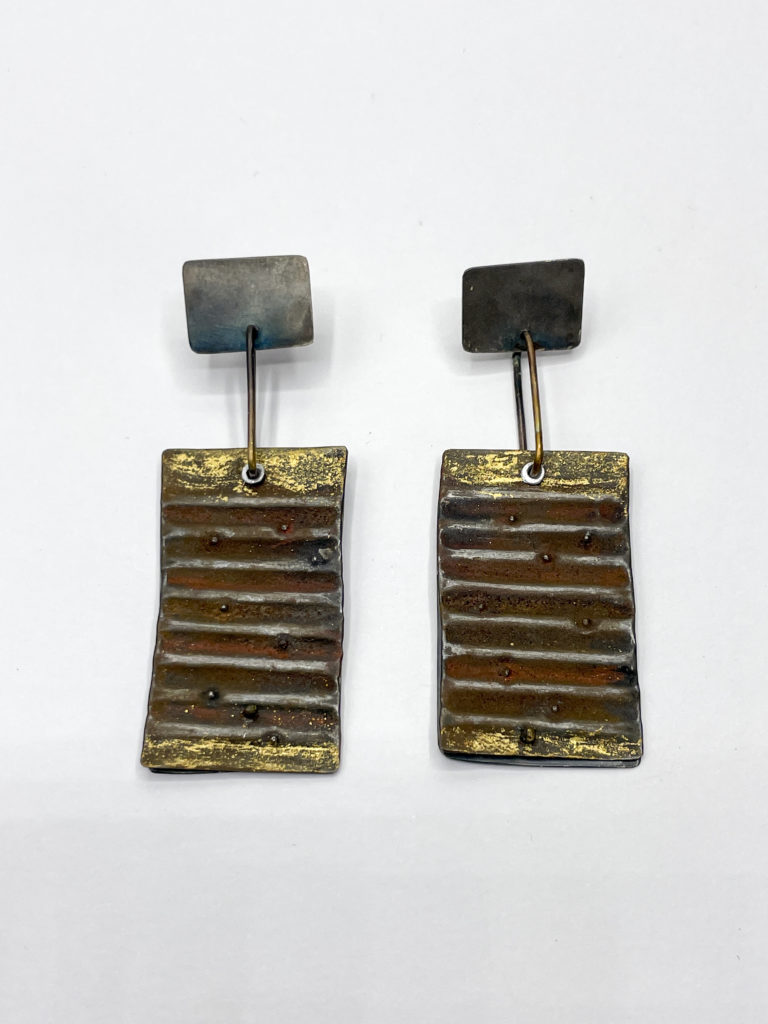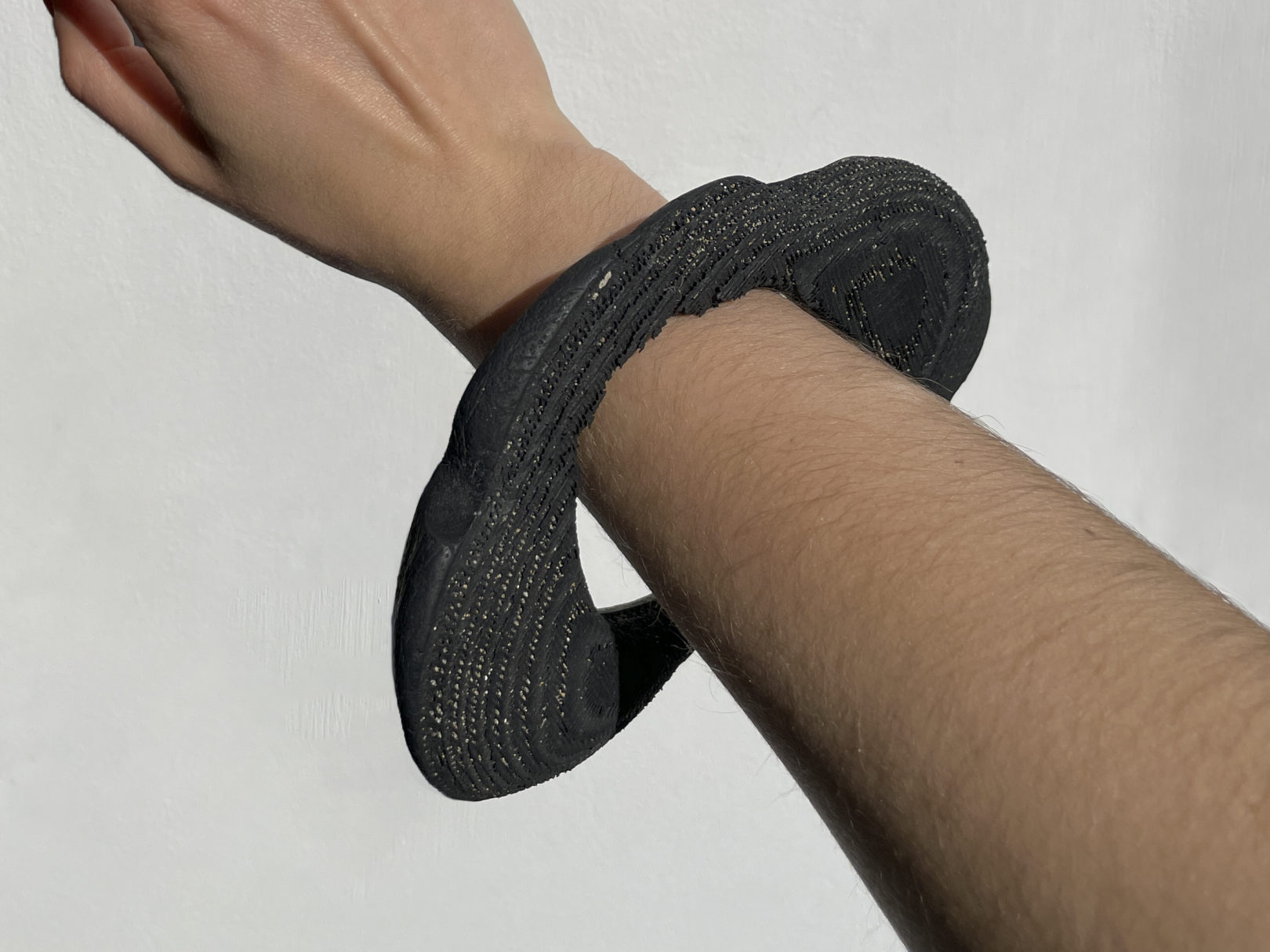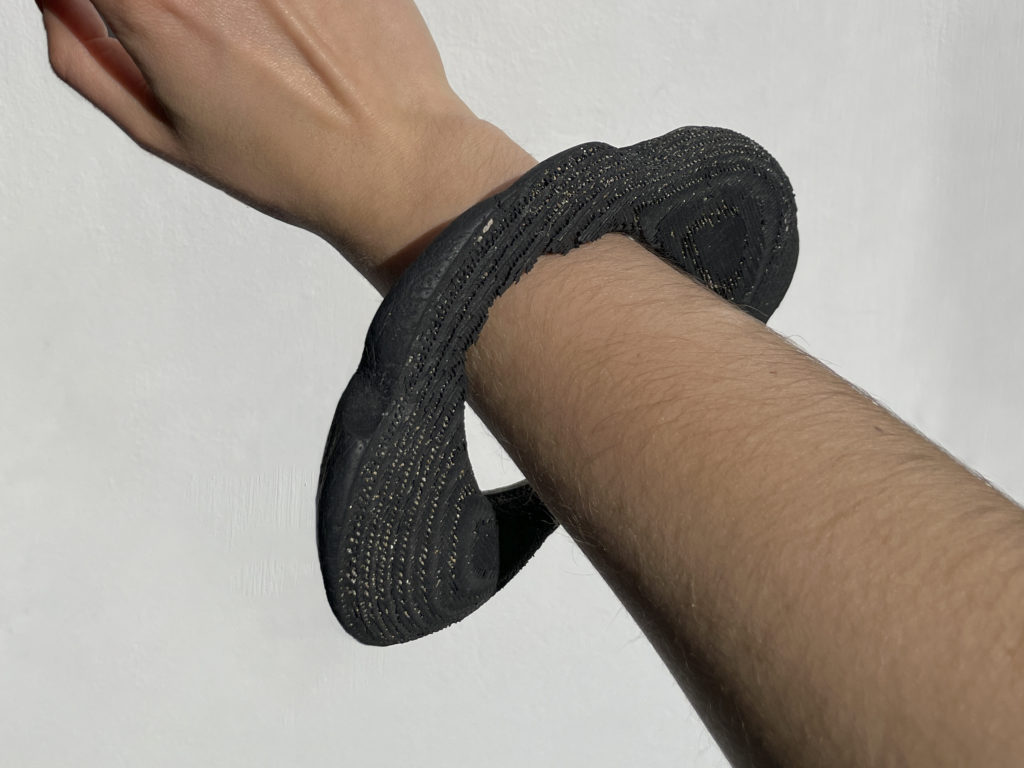by Alix Spooren
The things that we adorn ourselves with, are not without consequences. Choosing to make or wear jewellery carries a responsibility because traditional mining of gold, silver, and gemstones comes at a high cost: it ravages nature, contaminates water, harms habitats and endangers wildlife. The human toll is just as severe. Unsafe labour practices, often involving vulnerable or marginalised communities, persist in many parts of the industry. In most instances, the human and environmental cost never shows up in the sparkle on the finished jewel.
Our ethical approach
At GroundJewels, transparency, traceability, and fair sourcing are of the utmost importance to us. That means partnering with jewellers who source from recycled or reclaimed materials like recycled silver, gold, even e-waste. That also means accepting unconventional materials: beachcombed glass, found material, industrial scrap, and natural material. These carry stories of place, history, and re-use. Second-hand silver, for instance, offers a way of honouring the beauty of the material without contributing to further damage to the earth. Silver can be melted and reworked almost indefinitely, as artists breathe new life into old material.
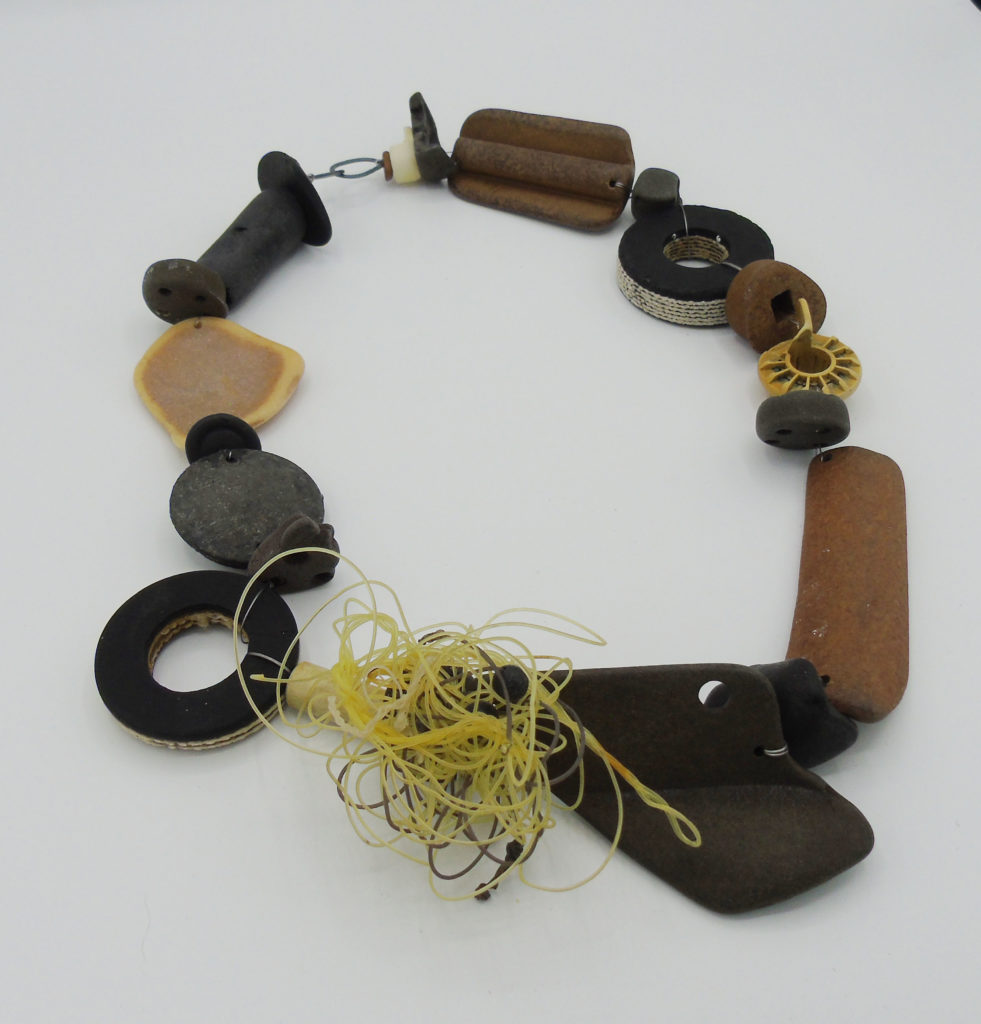
Materials with memory
These materials are not lesser. They carry stories—of place, of history, of renewal.
A piece of second-hand silver, for instance, allows us to honour the material’s beauty without extracting more from the earth. Silver can be melted and reworked nearly endlessly, inviting artists to breathe new life into what already exists.
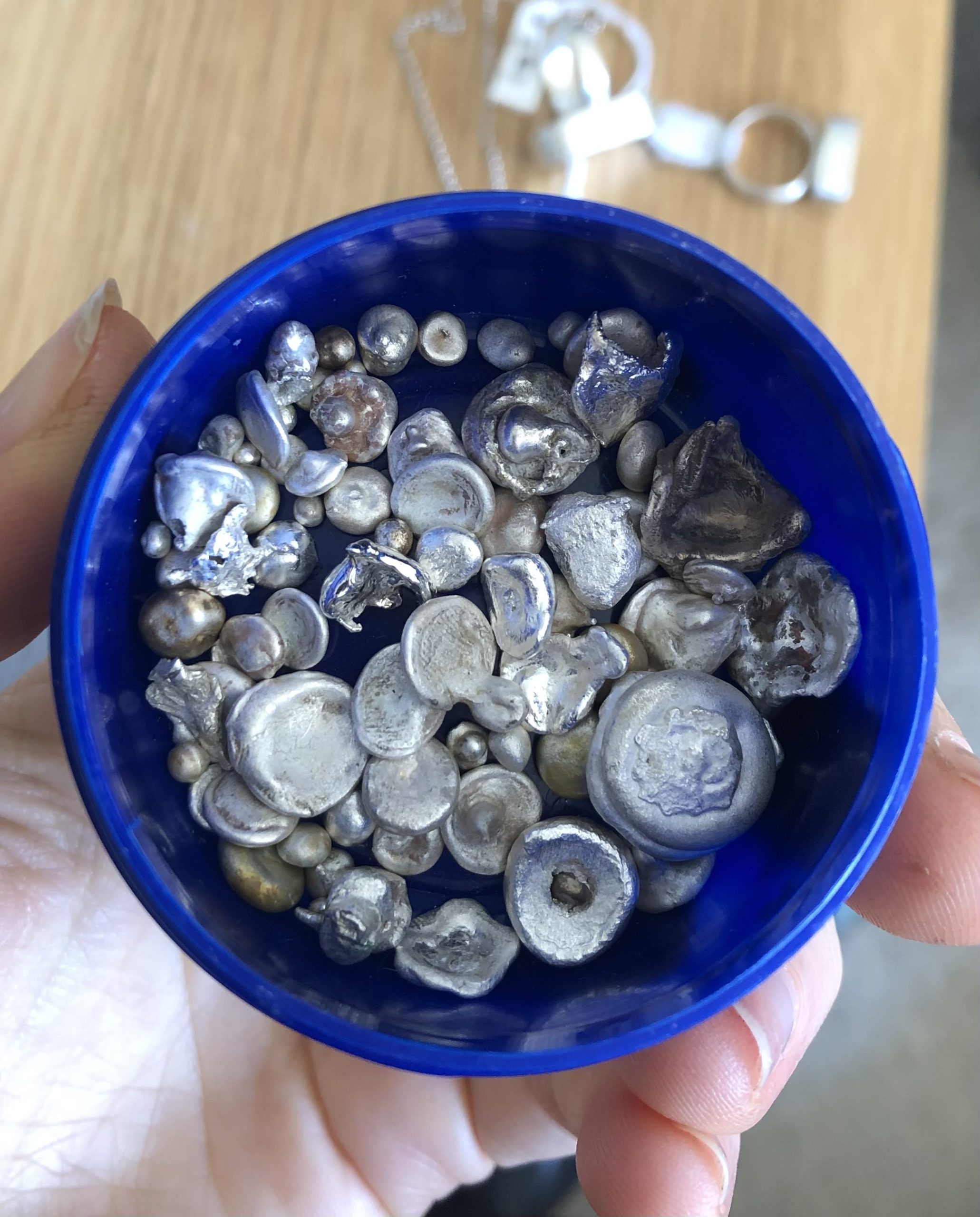
Craft as a conscious process
Responsibility in jewellery craft also translates to process: using low-impact processes, reducing waste, honouring time and effort. It’s respect for material, for maker, for environment. The jewellers at GroundJewels embody this ethos in every step of their craft, demonstrating that sustainability isn’t a constraint, it’s a creative force.
Jewellery with purpose
Sustainable jewellery isn’t just about how it looks, but about how it should be. It’s a narrative of a different kind. One of responsibility, consideration and prudence. It invites us to look closer, to observe not just what we wear, but also why and under what circumstances it came to be. In that awareness lies the beginning of real change.
